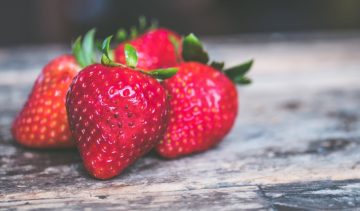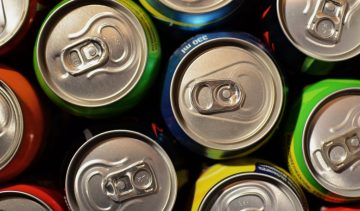In the fitness world everybody seems to eat chicken, egg whites and protein shakes. But did you know that getting enough protein in is important for everybody? Your body is not able to produce some of the nutrients in protein, so it’s important to get them from our nutrition. Let’s dive into it!
Dietproof
Upping your protein intake is very efficient when you want to lose weight. Proteins are satisfying and do not contain that much calories. Next to that, directly after your meal your body converts some of the energy (calories) into warmth (thermogenic effect), instead of in fats. However, this doesn’t mean you will lose weight by eating a lot of proteins, it will only help you to eat less during the rest of the day.
Nutrients
It’s also good for you if you don’t want to lose weight. All cells in the body contain protein. An adult person consists of approximately twelve kilograms of protein in total. The body uses protein by breaking off cells and rebuilding them again. You also lose protein through your hair, nails, skin flakes, sweat and urine. It’s important to replenish your protein level again! Also, protein is needed for muscle retention and muscle gain to make you feel fit and strong.
Other functions
Furthermore, protein regulates processes in the body. Enzymes for example, are proteins. Just like antibodies and most hormones. Protein also transports substances, like oxygen from the lungs to the tissues. And lastly, we also need proteins for the transmission of stimuli from the brain- and nerve cells. All in all, protein is very important!
Dietary advice
A regular active person needs 0,8 grams of protein per kilo of bodyweight. The absorption of animal based protein is better than plant based protein, this is why vegans and vegetarians need to take 15 grams extra.
Because athletes use their muscles more often, they also need to eat extra protein. For endurance training this means 1,2-1,4 grams of protein per kilo of bodyweight and for strength training it is 1,7-1,8 grams of protein per kilo of bodyweight.
Animal based proteins vs plant based proteins
Animal based proteins are better for protein absorption, since they have the complete set of nutrients and plant based proteins don’t. However, too many meat and dairy products can cause an higher intake of, for instance, saturated fats (the unhealthy ones). So, a combination of animal based proteins and plant based proteins is the best. Animal based sources of protein are chicken, diary and cottage cheese. Plantbased sources are soy products, cereals, legumes and nuts.
Do you get enough protein in?










